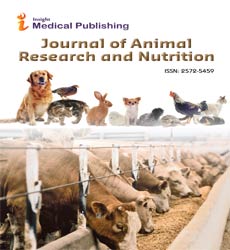Animal Health and Animal Vaccine
Sonia Mishra
Visit for more related articles at Journal of Animal Research and Nutrition
Abstract
Animal vaccination is the most cost-effective and impressive method of controlling infectious diseases. Veterinary vaccines not only for the strong immune system in animals but also play an effective role in reducing the transmission of zoonotic diseases to humans and in securing food supply for humans. The traditional inactivated or live-attenuated vaccines constitute the majority of the licensed veterinary vaccines that are recently in use. Some drawbacks are associated with conventional vaccines, and there are still several diseases that have yet to be treated successfully, demonstrating the need for better and safest vaccines. Recombinant vaccines represent a vital strategy by which some of the limitations of conventional vaccines can be overcome. Currently, the veterinary field has witnessed the most powerful and successful applications of recombinant vaccines where more than a dozen viral-vectored vaccines, subunit, DNA, RNA, and virus-like particles-based vaccines were licensed for veterinary use, and many more are under development. There is a wave of rationally designed vaccine innovations ahead of us to benefit animals, animal owners, and ultimately humans and society.
Select your language of interest to view the total content in your interested language

Open Access Journals
- Aquaculture & Veterinary Science
- Chemistry & Chemical Sciences
- Clinical Sciences
- Engineering
- General Science
- Genetics & Molecular Biology
- Health Care & Nursing
- Immunology & Microbiology
- Materials Science
- Mathematics & Physics
- Medical Sciences
- Neurology & Psychiatry
- Oncology & Cancer Science
- Pharmaceutical Sciences
